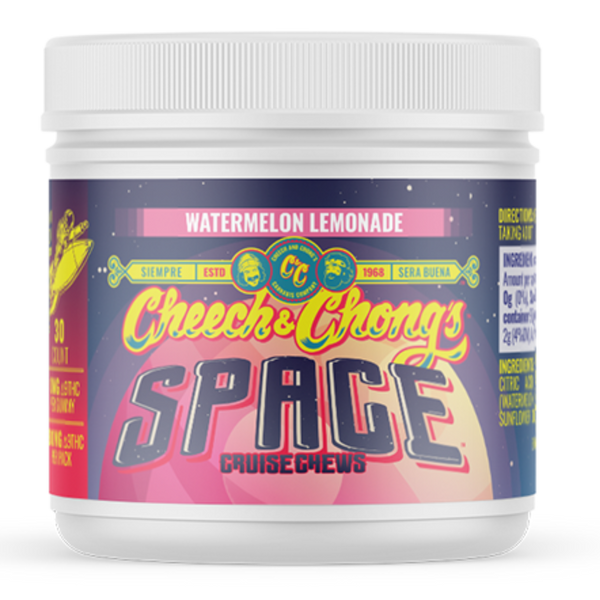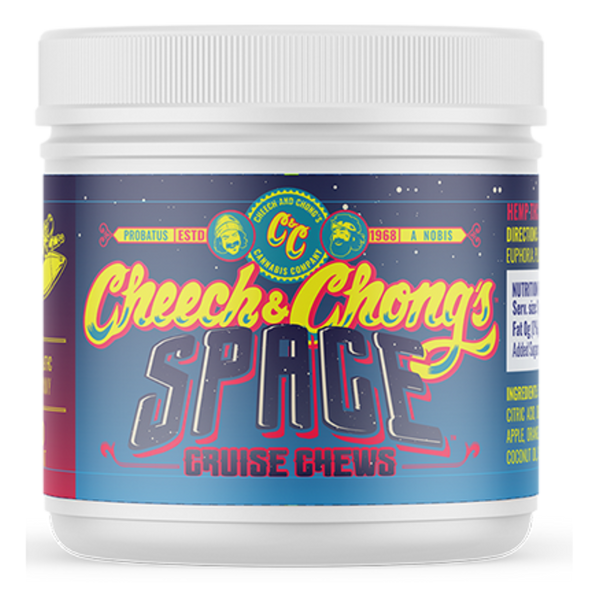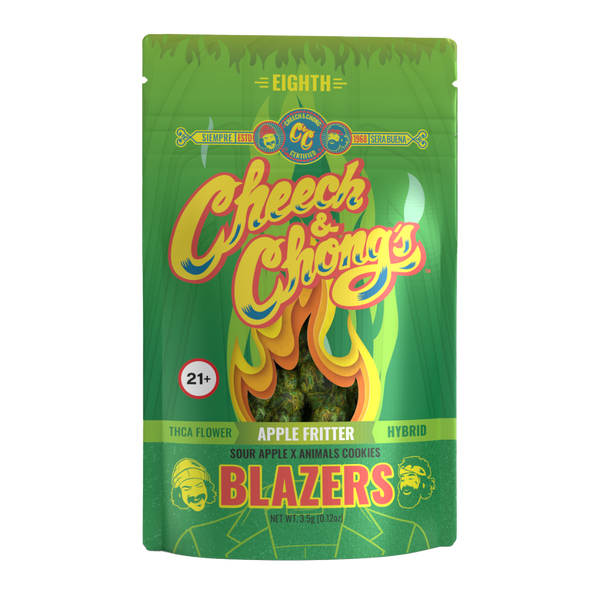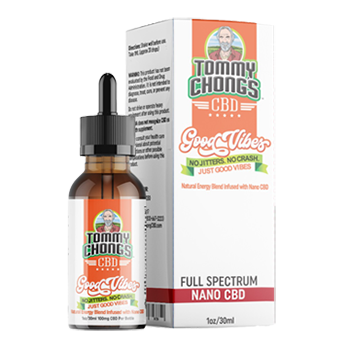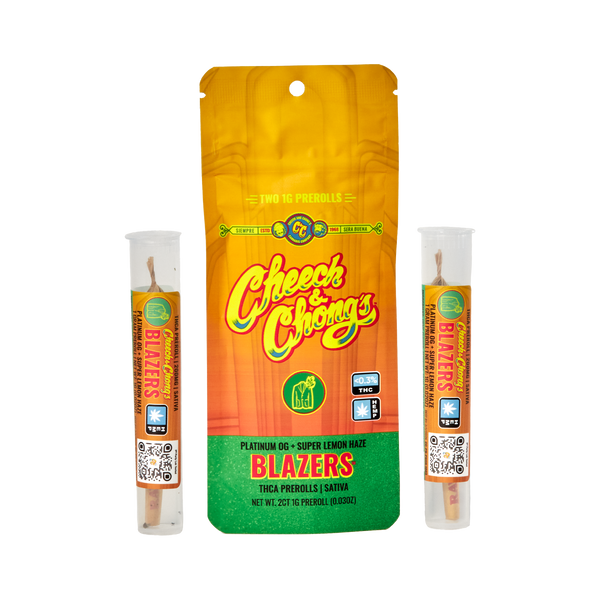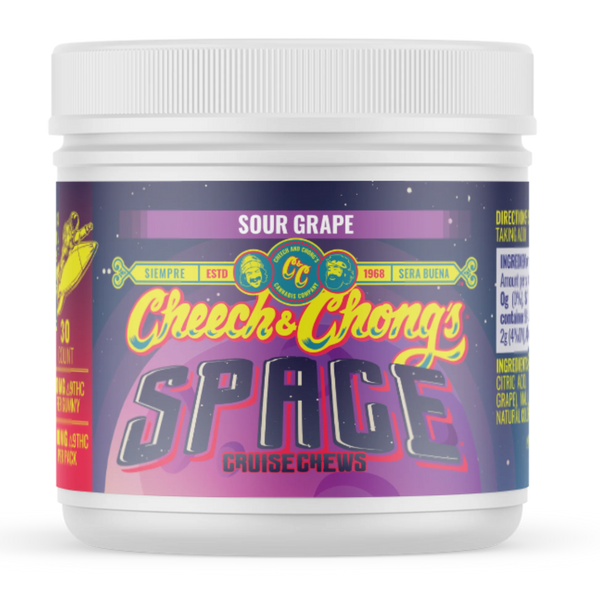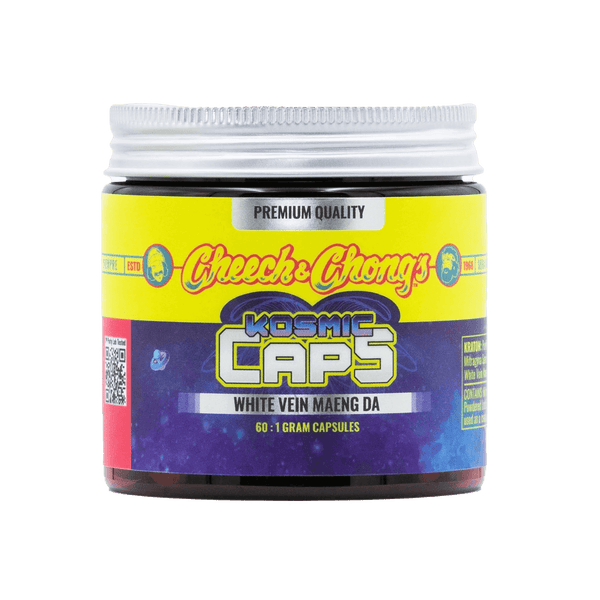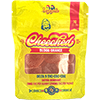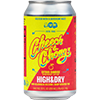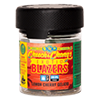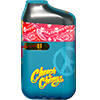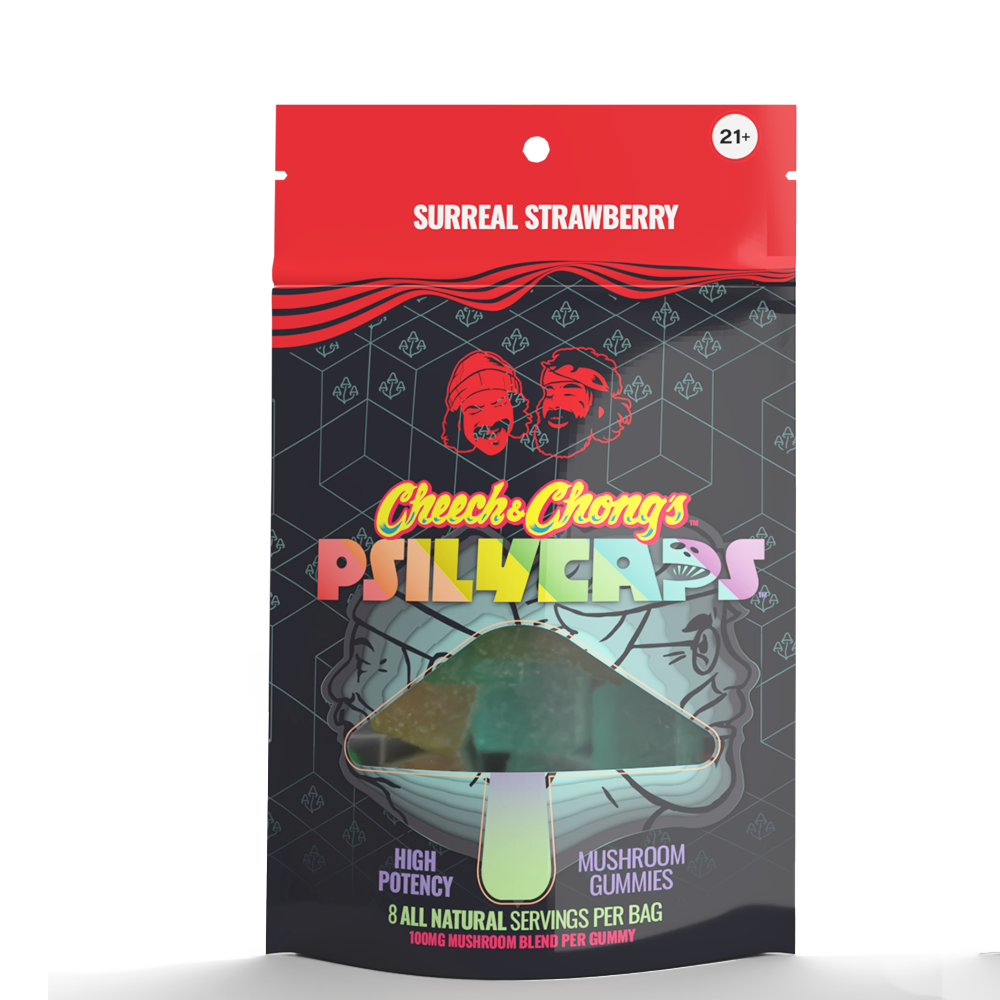Is THCa Legal in Georgia? New Laws & Legal Alternatives
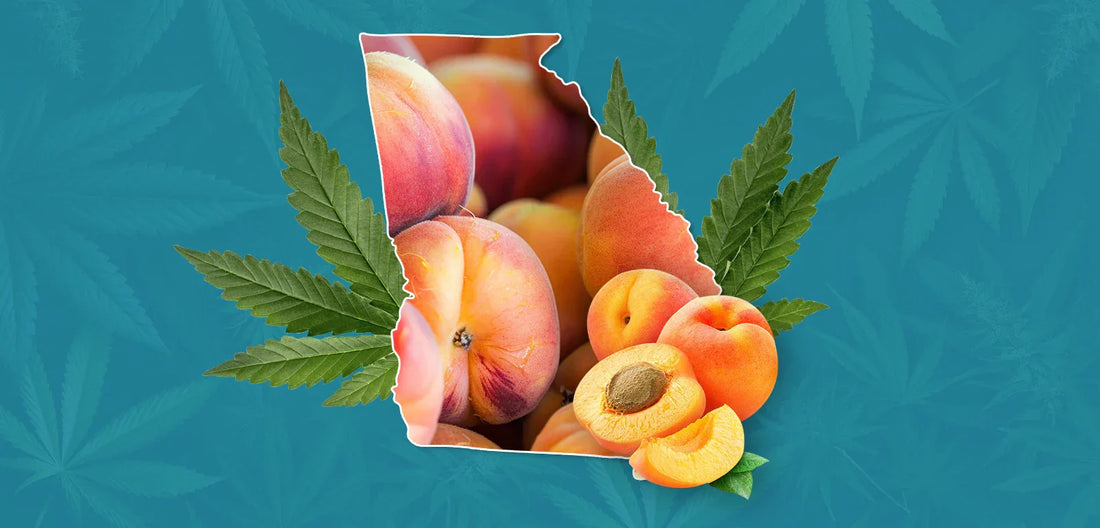
Is THCa legal in Georgia? Not really. Rule 40-32-5-.01(1)(a)(1) specifically prohibits the sale of hemp flower or leaves, no matter how much (or little) THC they contain. That ban alone wiped most THCa flower off shelves overnight.
And for the products that did survive? Lawmakers added another hurdle in 2024: a new “total THC” testing formula that counts not just the THC already active in a product, but also the amount of THC that THCa converts to once heat is applied. To be legal, Total THC = Delta-9 THC + (0.877 x THCA) ≤ 0.3% by dry weight.
But that doesn’t mean Georgia is a total cannabis dead zone. Here’s what you should know:
-
Hemp-derived Delta-9 is still legal, as long as it stays under the total THC threshold (so lots of gummies and beverages still qualify).
-
Hemp flower and leaves are prohibited, regardless of THC content.
-
Hemp products must pass the “Total THC” test. Products must not exceed 0.3% THC by dry weight. This rule counts not only the THC already present but also the THCa that would convert into Delta-9 when heated.
-
CBD, Delta-8, and Delta-10 are also legal, but face the same testing rules, and local crackdowns are on the rise.
-
Food products infused with cannabinoids (like brownies or cookies) are banned, but gummies and drinks are explicitly allowed.
So while you can’t get your hands on THCa smokeables, cannabis products like Delta-9 gummies and drinks are still federally compliant as long as they don’t exceed 0.3% THC — making them the best place to start if you’re looking for options that won’t land you in hot water.

How Georgia Currently Defines “Legal Hemp”
On paper, Georgia’s new hemp rule looks like simple math: to qualify as legal hemp, products must not exceed 0.3% total THC by dry weight, where Total THC = Delta-9 THC + (0.877 × THCa). Anything above that limit is classified as marijuana, which remains illegal in Georgia.
But the law doesn’t stop there. SB 494 also banned the sale of hemp flower and leaves outright, regardless of if it passes the total THC math test. This is a major shift from how things worked before. Until 2024, Georgia followed the federal standard, which said that as long as your product contained 0.3% Delta-9 THC or less, it qualified as hemp.
THCa flower slipped through the cracks because in its raw, unheated state, it tested under the legal Delta-9 limit. This made it look perfectly fine to sell as a raw product. But once it’s heated, THCa converts into Delta-9 through a process called decarboxylation — basically, adding heat transforms THCa into the psychoactive THC most people associate with cannabis (which can absolutely get you high). Lawmakers saw this loophole and closed it. Now flower is banned outright.
HB 213 and SB 494, Decoded
To understand how Georgia’s hemp laws got so complicated, you need to look at two key bills:
1. Georgia House Bill 213 (HB 213) – Passed in 2019
- Also known as the Georgia Hemp Farming Act, this bill legalized hemp cultivation and hemp-derived products, as long as they contained 0.3% or less Delta-9 THC by dry weight.
- It aligned with the 2018 Farm Bill, and since it didn’t mention THCa at all, products with high THCa levels were still legal to sell. That’s how THCa flower and vapes became so popular.
2. Georgia Senate Bill 494 (SB 494) – Passed in 2024
- SB 494 said “Just kidding. We’re counting THCa now, too, because we know what you’re doing with it.”
- Basically, it updated the state’s definition of “THC” to include THCa, and also required labs to test products as if all the THCa had been heated and converted into Delta-9 THC. The new definition reads:
-
“‘THC’ means tetrahydrocannabinol, tetrahydrocannabinolic acid, or a combination of tetrahydrocannabinol and tetrahydrocannabinolic acid.”
The bill also states: “…delta-9-THC concentration shall be established by: (1) - Identifying the total percentage weight, on a dry weight basis where applicable, of delta-9-THC from a sample that has undergone decarboxylation such that all delta-9-THCA in the sample has been converted to delta-9-THC…”
-
“‘THC’ means tetrahydrocannabinol, tetrahydrocannabinolic acid, or a combination of tetrahydrocannabinol and tetrahydrocannabinolic acid.”
- That means products are judged not just by what’s in them now, but what they become when used as intended. And as part of this legal overhaul, SB 494 also explicitly banned the sale of hemp flower and leaves altogether, no matter how low the THC or THCa content is. Even federally compliant flower is off-limits under state law.
Why Most THCa Products Flunk Georgia’s New Test
Most THCa-rich products that are heated, like vapes, don’t stand a chance of passing. Here’s why:
- The average THCa vape usually contains 15 to 30% THCa.
- Once heated, that converts almost entirely to Delta-9 THC.
- As a result, the total THC will be well above the 0.3% limit…and illegal.
Could an ultra-low-THCa hemp vape pass the test? Maybe. But it wouldn’t deliver the effects people are looking for, and it’s nearly impossible to find.
Non-heated THCa products, such as creams or gummies, can meet the legal THC limit if total THC stays under 0.3%. However, because they aren’t heated, they won’t produce psychoactive effects.
Can You Still Buy THCa in Georgia?
Short answer: not really.
Georgia law specifically bans hemp flower and pre-rolls as a category, regardless of THC levels. That means the smokable THCa products are completely off the table.
For everything else, Georgia applies the “total THC” test. On paper, THCa products are legal if they stay under 0.3% total THC after heating. In practice, almost no THCa vape or concentrate makes that cut, because once the THCa converts to Delta-9, it pushes far above the threshold.
That leaves consumers with two realities:
- Non-smokable THCa like gummies, tinctures, or topicals (which typically don’t have psychoactive effects)
- Federally compliant Delta-9 gummies and drinks that don’t exceed 0.3% THC
Possession Gets Complicated in a Post-SB 494 World
Scoring THCa in Georgia is tough enough, but getting caught holding onto it? That’s where the real gamble starts.
Under SB 494, cops don’t see “hemp” — they see the THC it could turn into if you lit it on fire. If that total pushes over 0.3%, Georgia calls it marijuana, plain and simple.
And the penalties aren’t just a slap on the wrist, either:
-
Possession of 1 ounce or less → misdemeanor, up to 1 year in jail and/or a $1,000 fine.
- Possession of more than 1 ounce → felony, 1–10 years in prison and/or a $5,000 fine.
Because THCa flower is banned altogether, possessing it puts you at the same legal risk as if you’d brought marijuana over state lines. Lab results won’t save you if it’s raw flower or leaf—legal content doesn’t override format restrictions.
For other hemp-derived products (like vapes or gummies) that are still allowed under Georgia law, it’s a good idea to keep the original packaging and a copy of the lab results handy. If you’re ever questioned, it helps to show that your product meets the state’s total THC testing standards.
Georgia Cannabis Laws: All Brakes, No Gas
Georgia’s made it pretty clear that it isn't easing up on any cannabis laws…if anything, it’s doubling down.
The THCa crackdown is just one piece of a much bigger, stricter picture.
Across the board, the state keeps cannabis access on the tightest leash possible, with only narrow exceptions for hemp-derived products and tightly controlled medical use.
Here’s how it breaks down today:

Recreational Marijuana: Still 100% Illegal
This one’s simple: Georgia hasn’t legalized recreational cannabis in any form.
A few cities, like Atlanta and Savannah, have chosen to decriminalize small amounts, which mostly means reduced penalties if you’re caught. But that doesn’t change state law. At the state level, marijuana is still a Schedule I controlled substance — no recreational use, no dispensaries, and no legal way to buy flower, joints, or edibles.
Medical Marijuana: Legal in Theory, but Extremely Restricted
Georgia does have a medical cannabis program, but it’s more of a technicality than true access.
Patients with one of about 17 qualifying conditions — including epilepsy, Parkinson’s disease, cancer, and PTSD — can apply for a Low-THC Oil Registry Card. That card allows them to legally possess up to 20 fluid ounces of oil that contains no more than 5% THC.
The catch is that oil can’t be smoked, vaped, or baked into edibles. For years, that was the only option, though SB 195 expanded the list slightly to include formats like tinctures, capsules, and patches. Even with those updates, infused foods and beverages remain banned, and there are still no legal dispensaries where patients can reliably purchase products.
In short, Georgia’s medical program exists on paper — but in practice, it leaves most patients with very few real options.
CBD: Legal with Limits
CBD is legal in Georgia as long as it comes from hemp and contains 0.3% Delta-9 THC or less. That part’s straightforward.
Related Products
The complications come from how you’re allowed to consume it. Under SB 494, Georgia lawmakers banned cannabinoid-infused “food products,” which the law defines as anything eaten for basic nutrition — think cookies, brownies, or other snacks.
But not everything got cut. Gummies and non-alcoholic beverages were given their own legal carve-out, which means CBD gummies, seltzers, and mocktails are still fair game as long as they stay under the THC cap.
So: CBD gummies? Legal. CBD seltzers and mocktails? Go wild. CBD brownies or infused cookies? No dice.
In other words, CBD is fine in Georgia. Just stick to gummies and drinks, not baked goods.
Hemp-Derived Delta-9: Legal, but on a Regulated Menu
Hemp-derived Delta-9 THC is still legal in Georgia — as long as the total THC stays at or below 0.3% by dry weight. That’s the big rule. But the fine print is where things get interesting.
SB 494 banned the sale of hemp flower and leaves, even if they contain compliant levels of Delta-9 THC. So Delta-9 flower is not legal for sale or consumption in Georgia, no matter how you label it.
It also banned “food products” infused with cannabinoids, which means anything that looks like a delicious snack — cookies, brownies, baked treats — is officially off the table.
It also banned “food products” infused with cannabinoids, which means anything that looks like a delicious snack — cookies, brownies, baked treats — is officially off the table.
Luckily, lawmakers carved out two specific exceptions: gummies and non-alcoholic beverages. Those formats remain legal, and as long as they test under the threshold, they’re fully compliant in Georgia.
But if you’re shopping smart, this actually works in your favor.
Gummies and drinks are consistent, lab-tested, and dosed in a way that makes it easy to stay within the rules. So while hemp flower and baked goods got the boot, Delta-9 gummies and THC seltzers are still on the menu — and they’re the safest bet for anyone in Georgia looking for legal THC.
Other Hemp-Derived Cannabinoids: Technically Legal, Still Restricted
Okay, we’ve covered Delta-9 THC and CBD, but what about the rest of the lineup — Delta-8, Delta-10, HHC, & THC-O? Well, Georgia hasn’t technically banned them, but the rules aren’t exactly wide open either.
On paper, these cannabinoids are still legal if they’re hemp-derived and stay at or under the 0.3% total THC limit, and aren’t in flower form. But while they remain technically legal, some counties have already started targeting Delta-8 and similar products more aggressively.
For now, these cannabinoids live in a gray zone. They’re not explicitly outlawed, but they’re on the radar. If you’re buying them in Georgia, check the COA, know your THC totals, and stay far away from hemp flower or leaves.
The bottom line is, Georgia keeps cannabis on the shortest leash possible — no recreational use and barely any medical access.
Hemp-derived cannabinoids like CBD, Delta-8, and Delta-9 gummies create some wiggle room, but lawmakers are closing those loopholes fast. The result is a cannabis landscape that feels more like quicksand than solid ground.
If you want to stay legal, you can’t just grab whatever’s on the shelf — you need to know what’s in your stash, and whether it passes Georgia’s hemp laws.
How to Shop for Hemp Products in Georgia Without Raising Eyebrows
With Georgia’s cannabis laws tightening up, shopping smart isn’t just a suggestion — it’s survival. While most THCa products aren’t an option, you can still legally get your hands on Delta-9. Here’s how to keep your yourself safe (and your record clean):
1. Always Check the COA (Certificate of Analysis)
If you’re buying hemp products in Georgia, a COA is your best defense. Think of it as a legal passport that proves what’s inside your drink or gummy.
A real Certificate of Analysis (COA) should include:
- A clear total THC content (not just Delta-9 or THCa alone)
- A calculated total THC figure (post-decarb)
- A reputable third-party lab report that includes the name, date, and license number
- A full cannabinoid breakdown that matches what’s on the label
And if you're looking at buying something with no COA, or one that dodges total THC numbers? Treat it like gas-station sushi — you don’t need that kind of risk.
2. Read the Label Like You Read Edible Dosage
Meaning: read it twice.
A trustworthy label should show:
Exact cannabinoid content, including THCa
- A batch number that links back to the COA
- Suggested use and serving size info
If the label feels vague or looks like it was printed on a home computer, odds are the rest of the operation is just as sketchy.
3. Shop From Brands That Understand the Rules
Stick with companies that don’t treat compliance like a magician’s trick. Look for brands (like Cheech and Chong) that are:
- Fully third-party tested
- Transparent with THC totals
- Clear about how their products fit federal and state law
We don’t ship smokable hemp to Georgia — but we do carry plenty of compliant Delta-9 gummies and seltzers that keep you lifted without putting you on the wrong side of state law. Staying legal shouldn’t feel like a gamble. Shop smart, and you can still have fun.
Georgia’s Got THCa on a Tight Leash
Georgia didn’t ban THCa itself, but between the outright ban on hemp flower and leaves and strict new testing rules, most real products don’t stand a legal chance. That doesn’t mean the fun’s over. Hemp-derived Delta-9 gummies and THC drinks are still completely legal as long as they meet the 0.3% limit, and those are the formats you’ll keep seeing in Georgia.
At Cheech & Chong, we’ve leaned into exactly that — fully tested, federally compliant products that still give you what you’re looking for, without putting you on the wrong side of state law (including gummies and drinks). So while THCa smokables may be off the table, Georgia shoppers still have options to keep things legal and enjoyable.
DISCLAIMER: the contents of this article are for informational and educational purposes only and should not be construed to be legal advice. Though we take great effort to describe the cannabis regulatory environment accurately, we make no warranties or representations as to the accuracy of the information in the articles posted on this website or that information we publish is current. If you have questions about the legality of cannabis and hemp, you should consult a qualified attorney in your jurisdiction.
These statements have not been evaluated by the Food and Drug Administration and are not intended to diagnose, treat, cure, or prevent any disease.
Cheech & Chong hemp-derived products contain legal hemp that complies with the Federal Farm Bill and contain less than 0.3% delta-9 tetrahydrocannabinol (THC) by dry weight.


